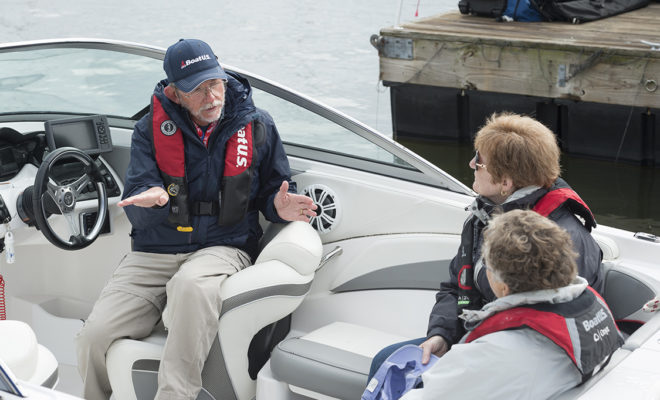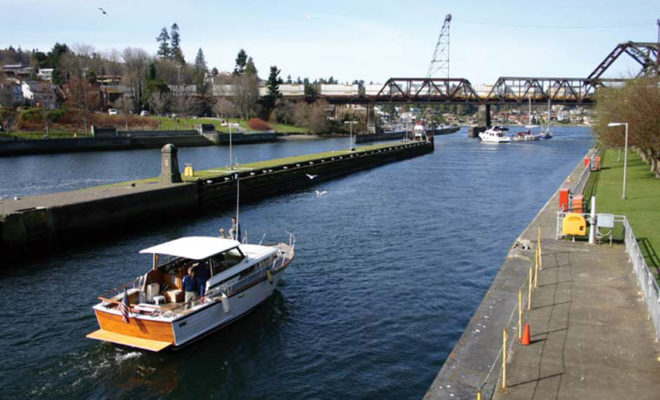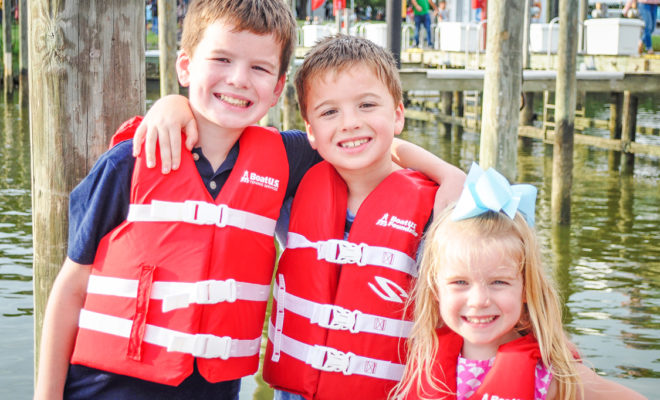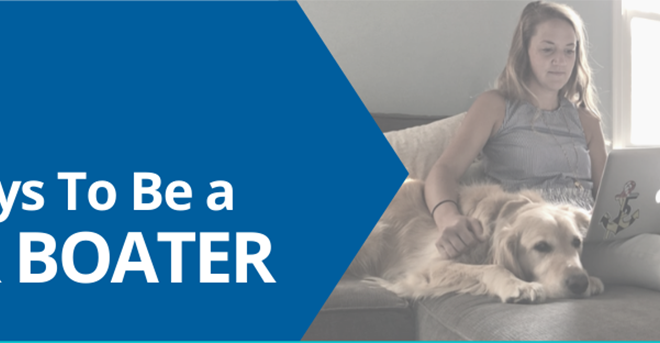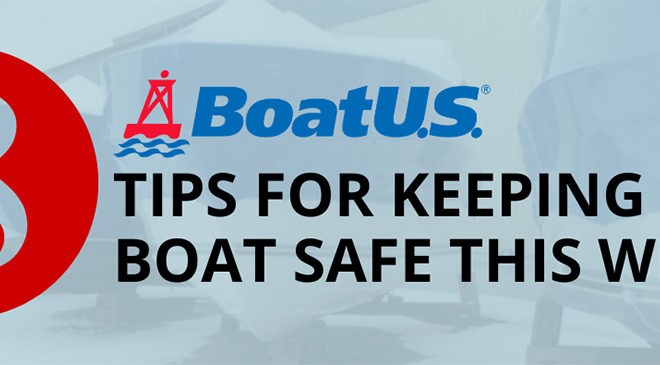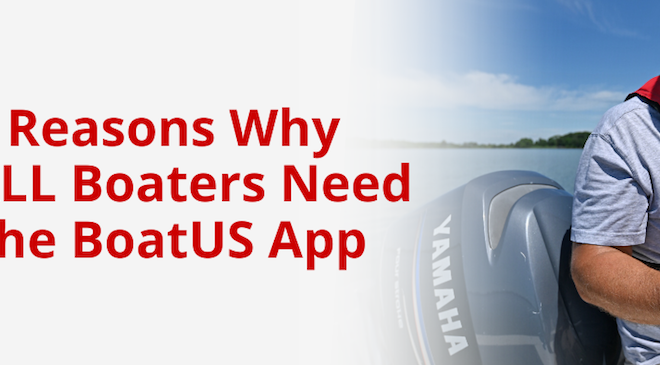Pop quiz! Can you correctly answer the following questions?
What is the safest thing to do for someone suspected of having hypothermia?
- Give them a warm alcoholic beverage
- Massage the body to circulate blood
- Apply hot towels to the head to thin the blood
- Get immediate medical attention
How does alcohol use affect boat operators or passengers?
- Depth perception becomes sharper
- Reasoning ability becomes quicker
- Balance and sense of direction improve
- Physical reactions become slower
Which of the following is considered a safe refueling practice?
- Using the hands-free clip to avoid spills
- Turning your key on to operate the fuel gauge
- Sending all passengers below while refueling
- Closing all hatches and doors while refueling
U.S. Coast Guard regulations require that a 14-foot powerboat carry which of the following items between sunset and sunrise?
- Power horn and bell
- Navigation handbook
- Garbage placards
- Navigation lights
Which of the following is a requirement for life jackets?
- They must be orange or other highly visible color
- They must be stored safely in a watertight bag
- They must provide miles-per-hour impact rating
- They must be properly sized for the intended wearer
Which of the following is recommended when docking with wind and current?
- Whenever possible, approach the dock with the wind and the current
- Have crew positioned to physically fend off the dock
- Prepare two docklines; any more than that will get tangled
- Have your fenders and docklines ready before you approach the dock
How do you think you did? Read on for the answers.
No matter whether you’re a seasoned skipper or fairly new to boating, there’s always something more to learn. And according to statistics, the more you know, the safer you will be on the water. Here are seven easy ways you can increase or refresh your boating knowledge for safer – and more fun – boating season.
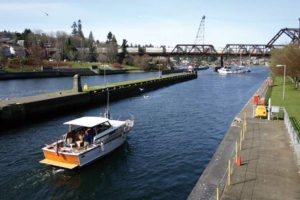
Credit: BoatUS Foundation
- Take an online boating course. Even if you can’t be out on the water, you can still prepare for boating season. A fun and easy way to do that is by taking an online boating course. Dreaming about a cruising lifestyle, or want to learn how to boat on rivers, locks, and lakes? Perhaps you want more in-depth knowledge on marine navigation, weather, or propane systems. You can find courses on all of these topics and more offered by the BoatUS Foundation for Safety & Clean Water at boatus.org/Courses. US Power Squadrons, US Coast Guard Auxiliary, and BoatUS members save 25% at checkout. There are also several free courses available, such as state-specific boating safety courses.
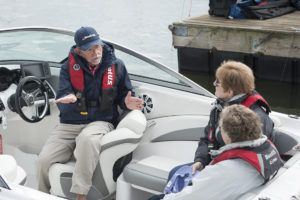
CREDIT: Stacey Nedrow-Wigmore/BoatUS
- Take an on-the-water training course. There’s no better way to learn about boat handling than getting time at the helm. Whether you hire a captain for some one-on-one training aboard your own boat, visit one of several powerboat-handling or sailboat-handling schools, or attend an in-depth handling course with a boat charter company, it’s time well spent. The BoatUS Foundation offers several affordable hands-on powerboat training courses at locations around the country. Class sizes are limited to four students per vessel, ensuring students gets sufficient time at the helm under the watchful eye of a U.S. Coast Guard-certified instructor. boatus.org/On-Water
- Watch online videos. YouTube is a great and free source for instruction on all kinds of boating-related topics from boat and line handling to safety and maintenance. BoatUS has an impressive library of more than a hundred free YouTube videos on nearly every boating subject, including how to use your VHF radio and how to call for help in an emergency. YouTube.com/BoatUS
- Crack open a book. When you’re tired of watching videos, open a book to expand your knowledge. Most experienced boaters will tell you that Chapman Piloting and Seamanship is one of the best reference books a boater can have. (TIP: Purchase this book at smile.amazon.com from your desktop computer and designate BoatUS Foundation as your supporting nonprofit. A portion of your purchase benefits the foundation and allows it to continue creating and supporting its valuable programs.)
- Peruse your manuals. When was the last time you read your boat’s manuals? Never? Maybe now is a good time. Learn how to use all the cool features on your radio, radar, GPS and other gear that you’ve been putting off until you have time. Learning how to operate your devices while you’re using them takes your attention away from what you should be watching and leads to accidents.
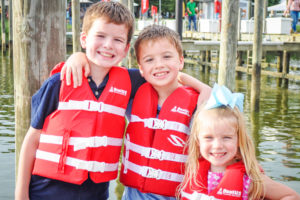
Credit: BoatUS
- Check your life jackets. More than two-thirds of all boating fatalities are drowning incidents, and 90% of drowning victims are not wearing a life jacket. There must be a properly fitting U.S. Coast Guard-approved life jacket in serviceable condition on board for each passenger. Have a little one out with you for a day but don’t have the right size life jacket on board? Borrow one for free at one of more than 575 Life Jacket Loaner sites.
- Take a first-aid course. Your dreams of summer cruises don’t usually include fishhook-impaled fingers, sunburn, or sprained ankles, but stuff happens on the water. The Red Cross offers first aid and CPR courses around the country and you can also find American Heart Association courses specifically for boaters that cover extras like carbon monoxide exposure, hypothermia, electric shock drowning (ESD), and seasickness.
Answers: If you chose “d” as the answer to all the questions above, you’d be correct.

